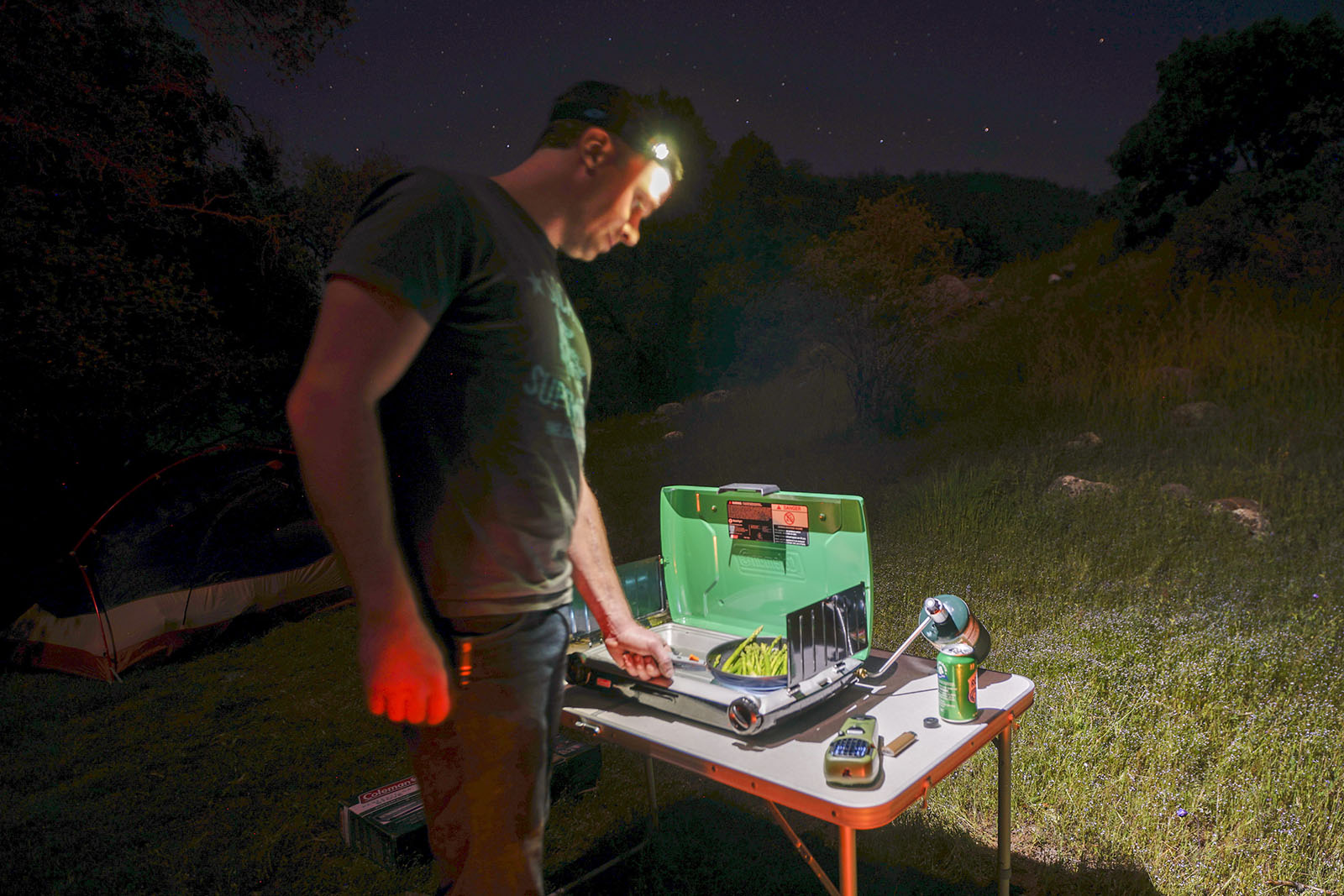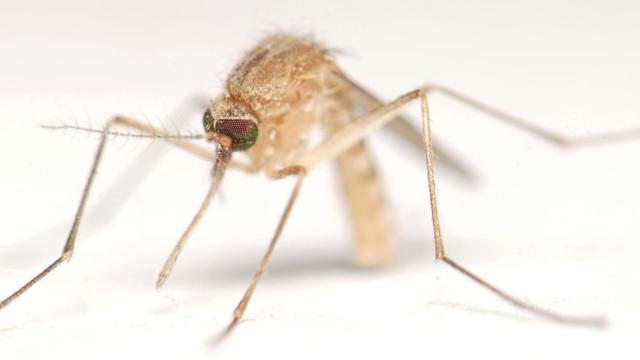From ancient home remedies to modern gadgets and even new clothes technology, there’s no need to suffer mosquito bites this spring. Follow this basic advice and never get bit again.
Do Home Remedies Work?
It depends on who you ask. Some people are less attractive to mosquito bites than others, likely resulting in anecdotal support of home remedies.
According to Smithsonian Magazine, factors like blood type, alcohol consumption and even the colour of your clothing can contribute to how much of your blood gets sucked. Those with Type A are the least likely to be eaten alive, while Type O bloods are the most attractive to mosquitoes. Other natural factors include the volume of carbon dioxide you exhale, your body temperature, the level of bacteria on your skin and the amount of ethanol or uric acid you secrete in sweat. Drinking alcohol can also correlate with an increase in mosquito bites, as can wearing unnatural colours like black or bright red.
That’s a ton of variables between people; too many to control for in order to evaluate the moderate effectiveness of eating garlic, taking vitamin B-1 or other such supposedly effective natural cure-alls.
“Protection against arthropod bites is best achieved by avoiding infested habitats, wearing protective clothing, and applying insect repellent,” concluded a 2002 study by the New England Journal of Medicine.
“No ingested compound, including garlic and thiamine (vitamin B1), has been found to be capable of repelling biting arthropods,” it continues. “Skin-So-Soft Bath Oil, which consumers commonly claim has a repellent effect on insects, provided only a mean of 9.6 minutes of protection against bites in our study.”
Compare that to even a moderate concentration of DEET — the Journal’s testing showed a 23.8% solution provided 5 hours of protection — and you can see why they drew that conclusion. If you want to repel mosquitoes with a spray or lotion, it’s DEET or nothing.
DEET And Side Effects
N,N-diethyl-meta-toluamide was developed by the US Army in 1946 as it looked for a solution to keep bugs off its troops fighting in dense jungles. Since that time, its effect on the human body has been studied significantly. According to Dartmouth’s cancer center, “studies over the past 40 years haven’t shown that DEET causes cancer or other illnesses.”
But, concern over potential side effects remains. And DEET does come with cautions. You’re not supposed to apply it to children under 2 months of age and DEET has been shown to pass from the skin of pregnant mothers into fetuses. Children of 12 or younger are advised to avoid concentrations above 30 per cent and only apply it no more than three times a day.
DEET does reduce the effectiveness of sunscreen by one third. Don’t use products that combine the two, and do apply sunscreen 20 minutes before adding DEET to your skin.
More troubling, a 2009 study conducted in France found that DEET could be, “Toxic to the central nervous system,” in animals. Corresponding data has not been collected showing the same effect in humans.
“Fewer than 50 cases of serious toxic effects have been documented in the medical literature since 1960, and three quarters of them resolved without sequelae,” the Journal found. “Many of these cases of toxic effects involved long-term, heavy, frequent, or whole-body application of DEET.”
If you’re worried about DEET’s side effects, the best advice is to weigh the odds of such against the dangers of mosquito bites. As the BBC states, “About 200 million people use DEET-based repellents every year and over 8 billion doses have been applied over the past 50 years.” Experts suggest you only apply enough to manage mosquito bites when they’re a risk and only apply it to exposed sections of your skin. No matter how effective DEET may be, it’s not as good as covering up with a long-sleeve shirt, pants, sock and such.

Anti-Bug Clothing
On that turkey hunt in the Sierra foothills, I wore LL Bean’s new “No Fly Zone” camo, which is permeated with permethrin. That’s a synthetic molecule derived from the chrysanthemum flower that’s claimed to not only repel most insects, but kill them if they spend too much time in contact with it. It’s also effective against other blood suckers like ticks and chiggers.
If you’ve ever had a chigger infestation, you’ll know how welcome protection against them is. Worst pain I’ve ever experienced.
During the hunt, we spent two solid days wading through high grass, sitting in bushes and crawling through bushes. Places you’re practically guaranteed to pick up ticks and other hangers on. After the trip, I found no ticks, chiggers or similar anywhere on my body and, despite mosquitoes being present in the air, I was largely unbothered by them.
Permethrin is now included in a wide range of clothing by LL Bean and other manufacturers. Built-in from new, it’s said to last 70 washes. That’s likely longer than the service life of the clothing. You can also apply permethrin in spray form to any item of clothing you wish. Done that way, it should last six to seven washes. At $US15 for a 24oz bottle (claimed to be enough for four “complete outfits), that’s great value for a versatile product that can also be applied to virtually any item of outdoors gear, including blankets, sleeping bags and tents.
Wearing permethrin impregnated clothing, mosquitos will still be attracted to you, but won’t land on the clothing itself or on any skin immediately in contact with it. On the hunt, the occasional mosquito would still buzz around my ear; but otherwise, I was unbitten. This stuff works.

Steaks on the campfire, asparagus on the stove, Thermacell in the middle of camp and zero mosquitoes.
Mosquito-Fighting Gadgets
Sonic mosquito repellants and bug zappers don’t work. “Small, wearable devices that emit sounds that are purported to be abhorrent to biting mosquitoes have also been proved to be ineffective,” found the Journal.
During that turkey hunt, we tested the $US24 Thermacell Mosquito Repellant Appliance. Not only does it have a catchy name, but it proved completely effective.
It works by using butane to heat a replaceable pad saturated with allethrin, a chemical repellant. The tiny flame is contained within the unit, which doesn’t heat up the device’s exterior; there’s no burn or fire risk, but I wouldn’t use one inside an encloses space like a tent for fear of carbon monoxide poisoning.
In action, the Thermacell Appliance creates a 15×15 foot “bubble” of protection. Inside it, there’s no mosquitoes. Walk outside it and you’ll start getting buzzed by mosquitoes. It loses its effectiveness in high winds, but in those conditions mosquitoes aren’t a concern anyways. With 486 reviews on Amazon, it has 4 stars; this is a real thing that works and is affordable. Thermacell also makes larger devices for use at home or while car camping.
Common Sense
Skeeters like low lying areas with still air, near water. Especially standing water, where they lay eggs and where their larvae incubate.
While camping, simply moving to an exposed site with a constant breeze is often enough to keep them away.
When locating your tent in a mosquito-infested area, point your door into the wind. Flying insects are naturally drawn to the still air created by a tent’s wind shadow on the lee side or by rain flys and vestibules. You want to keep your door away from these areas where mosquitos congregate.
At home, put in the effort to eliminate any areas of standing water on or near your property. Be diligent and you may be able to avoid a mosquito problem. Introducing mosquito fish to any pond or decorative body of water may help keep the bugs in check; the fish eat the larvae.
If you need to spend time in or move through a mosquito-infested area, your best protection is always going to be head-to-toe, full-coverage clothing. A head net will keep them off your face, ears and neck; I always carry one just in case, they’re light, small and cheap. You need to pair them with a brimmed cap of some kind to hold the netting away from your face; they can bite through it.

Bug central.
The Comprehensive Approach
“The protection provided by DEET is proportional to the logarithm of the dose; higher concentrations of DEET provide longer-lasting protection, but the duration of action tends to plateau at a concentration of about 50 per cent,” states the New England Journal of Medicine. If you’re looking for a topical repellant, that will be the most effective.
On that turkey hunt in a mosquito-infested valley in the eastern Sierra foothills, I applied a 50 per cent DEET lotion to my baseball cap and, during the day, wore permethrin-impregnated, full-coverage clothing. At night, I slept unprotected, first in a stand of trees next to the river that enjoyed a constant breeze, then the next night on the ground, in still air next to the car. Before going to bed, I placed the Thermacell on a rock a few feet away and made sure it was fitted with a fresh pad. I was armed with a head net, just in case, but didn’t use it.
The result? After two nights and two days in mosquito central, I found two bites on my right wrist. I guess nothing’s a 100 per cent guarantee, but there absolutely are effective methods and products to keep mosquitoes from sucking your blood.
Top photo: Rami, all others: Corey Hass
